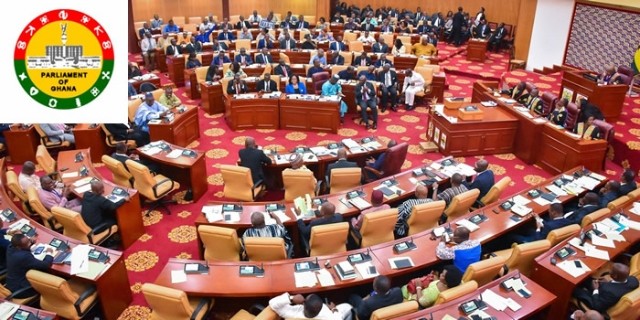Parliament of Ghana has passed the Energy Sector Levies (Amendment) (No.2) Bill, 2025, effectively ending tax exemptions on Marine Gas Oil (MGO).
The newly approved legislation, passed under a certificate of urgency on Thursday, aims to curb rampant smuggling and safeguard national revenue that has been significantly eroded due to abuse of the subsidy regime.
Presenting the 2025 Mid-Year Budget to Parliament on Thursday, July 24, Finance Minister Dr. Ato Baah Forson underscored the urgent need to end the subsidy on MGO, which was originally intended to support Ghana’s non-artisanal fishing fleet.
“Mr. Speaker, the tax exemptions on marine gas oil (MGO) was introduced to support non-artisanal fishing fleet operating from Ghana. Over the years, the tax exemptions have created incentives for abuse and smuggling of MGO onto the open market, resulting in revenue losses estimated at nearly half a billion Ghana cedis,” Dr. Forson told Parliament.
He explained that the government was compelled to act to reduce fiscal risks, enhance transparency, and protect the national budget from further leakage.
Dr Forson introduced the Energy Sector Levies (Amendment)(No.2) Bill, 2025 during parliamentary seating after he presented the mid-year review.
The new legislation which amends Energy Sector Levies Act, 2025 (Act 1135), when assented into law, will increase the rate of energy sector shortfall and debt repayment levy on marine gas oil in order to improve compliance and curb diversion of the product.
Following the adoption of the report by the Finance Committee on the urgency and object of the bill, it was taken through all the law-making process and passed under a certificate of urgency.
The widespread abuse of the exemption scheme led to a thriving black market, where subsidized fuel meant for fishing operations was diverted and sold for profit. This undermined both the intended beneficiaries and government’s revenue generation efforts.
The amendment is expected to boost Ghana’s fiscal space as part of broader reforms targeted at restoring macroeconomic stability and strengthening public financial management.
The passage of the bill forms part of a wider set of legislative and policy measures aimed at closing revenue loopholes, improving governance, and enhancing efficiency in the country’s energy sector.
By: Christian Kpesese/NR NEWS



